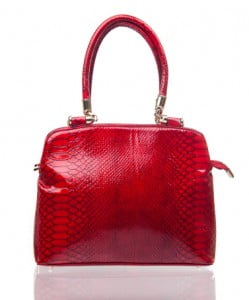Handbagged

This morning I happened to be reading Deborah Tannen’s Talking from 9 to 5, the chapter on women bosses.
Tannen critiques a Newsweek review of Margaret Thatcher’s memoir for its handbag image: “The image of Thatcher ‘clobbering them with her metaphorical handbag’ undercuts the force of her actions, even as it gives her credit for attacking her opponents. A woman clobbering men with her handbag is an object of laughter, not fear or admiration.”
Thatcher died today, and this afternoon’s New York Times article about her life references the handbag metaphor, too: “Brisk and argumentative, she was rarely willing to concede a point and loath to compromise. Colleagues who disagreed with her were often deluged in a sea of facts, or what many referred to as being ‘handbagged.'”
Regardless of any reservations I might have about Thatcher’s policies, and these are subject to revision based on this piece by Andrew Sullivan, I have to admit that I admire her force, her commitment, her political will. I think for a moment that I wouldn’t mind having it said about me that I “handbagged” someone. I like a good handbag as much as anyone, and I have been known to resist conceding when my convictions are at stake.
But I’m thinking again. In between this morning’s coincidental reading of Tannen on handbagging and this afternoon’s reading of the Times on Thatcher, I had an intense conversation with a man about another man’s use of the word “rape” to suggest “plunder” in casual conversation. I believe with Tannen that words matter, and that “rape” is a very specific kind of sexualized violence and a word that should not be used lightly. The man I was talking with invoked dictionary definitions and said that I have a chip on my shoulder.
He’s right: I do have a chip on my shoulder about rape.
Or maybe it’s a shoulderbag.

1 Comment
wholly jeanne
Really good post, Sugar. First, the handbags . . . Pocketbooks, I call them. The first time I appeared on stage in a scripted play, I played a central character who played 7 other characters. A British comedy and lots of fun. During rehearsals, as we sat around a table with the director and did some character building conversation, the director asked me: Where does Phoebe’s power come from?” to which I readily said, “Her pocketbook.” And with that, I became Phoebe . . . who was never seen onstage (as Phoebe or any of the other characters) without her pocketbook. There is power in the pocketbook. Definitely.
Now about vocabulary . . . I agree with you wholeheartedly: “rape” and “plunder” are not the same, and I loathe the use of the word “rape” for anything other than what it is: an act of sexual violence. We cannot let it become commonplace and synonymous with other things to the point that it loses potency. It is a disgusting word about a disgusting act of one person’s inhumanity towards another, and that’s not something that should ever be taken lightly or overlooked or trivialized or dismissed. Ever.